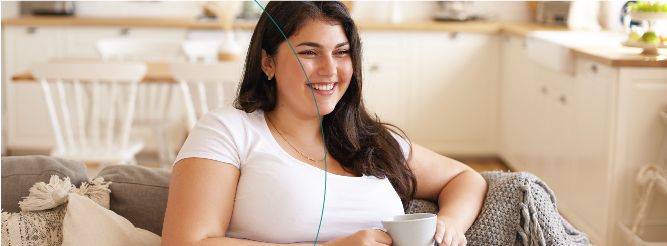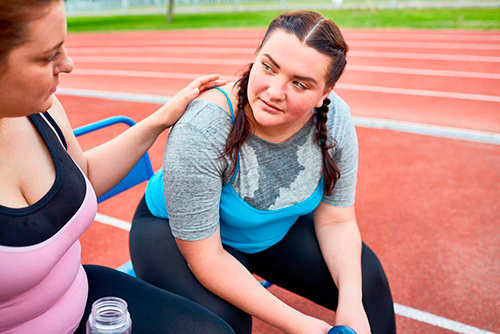
Caffeinated products, such as coffee and tea, have become a staple in our life and we’ve grown so accustomed to them that we can’t imagine cutting them off from our daily diet. A morning without coffee can seem preposterous to some and they may even deem it necessary to start their day, and while it’s true that coffee gives us that extra boost of energy to remain alert, there are certain circumstances in which consuming caffeine is not recommended.
One of these circumstances is during your recovery process after undergoing bariatric surgery, whether it’s the gastric bypass or sleeve, or any other type of invasive procedure that helps you lose weight. Before any type of surgery, your doctor will give a set of instructions you must follow in order to be ready for the procedure, and they can include changing your diet by limiting certain types of food and drinks. The same goes for your postoperative recovery process and the indications your doctor gives you may be stricter than the ones you followed beforehand.
Any type of bariatric surgery is invasive and your body will need time to be able to do what it did prior to the procedure, such as exercise, heavy lifting, and eating certain foods. Your doctor will indicate when you can start retaking your habits and it will be progressive, meaning that you’ll go day-to-day until your body has fully healed. At LIMARP®, Dr. Liza María Pompa González and our team of surgeons go over your specific case to create a postoperative treatment that will ensure that your recovery process goes smoothly.
Each patient’s process is different and it also depends on the type of bariatric surgery that was performed on them. For this article, we’ll focus on caffeine and if it’s safe for the patient to consume it after surgery, as well as what could happen if their body is not ready to digest it. If you have any lingering questions after reading it, we encourage you to contact your doctor.
Your Body and Caffeine
What’s caffeine? It’s a stimulant that works as a cognitive enhancer, meaning that it increases alertness and reduces drowsiness.
We mainly get caffeine from the coffee bean and consume it in coffee, tea, and cola whenever we need an energy boost. The amount of caffeine a person needs to remain alert depends on their body size and tolerance and its effects can last up to four hours. While we mainly consume caffeine to remain alert while we carry out tasks, it has also proven to be beneficial in the medical field.
Research has found that caffeine can be effective in protecting against diseases such as Parkinson’s or Alzheimer’s (for more information on how food impacts the brain, we invite you to read the next article).
Caffeine also has negative impacts, such as sleep disruption or anxiety, and because it produces a mild drug dependance, the lack of it can cause sleepiness, irritability, and headaches. An excessive intake of caffeine can also increase our heart rate and provoke tachycardia.
Everyone responds differently to caffeine, but if you’re constantly feeling ill because of it, try limiting its consumption or replacing it with decaf products. If the discomfort becomes unbearable, contact your doctor.
Caffeine and Bariatric Surgery
After your bariatric surgery, your doctor will alter your diet to give your stomach time to recover before it can actually digest large amounts of food or certain types of drinks. Your postoperative diet will mainly consist of liquid or pureed food for at least a week, which means that anythingthat contains caffeine is off the table (literally!) for however long your doctor prescribes.
This doesn’t mean that you will never be able to consume caffeinated products again, but you’ll have to slowly reintroduce them into your diet and in small amounts.
So, what happens if you consume caffeine while recovering from bariatric surgery?
First of all, caffeine is a diuretic, which means that it causes you to lose water from your system through urination. Being hydrated during your recovery process is very important, so is keeping track of your water intake during the day. Dehydration can affect your weight loss journey and affect your mood, as well as your energy levels.
Caffeine can also irritate the stomach and since the stomach is vulnerable due to the bariatric surgery, it can undermine or complicate the recovery process due to discomfort in the digestive system. Another side effect of caffeine is hunger suppression and this can prevent the patient from following their new diet plan in a consistent way, thus altering the caloric and nutrient intake that they need to maintain a healthy weight.
Another circumstance that may arise, and that for some may be positive, is gut motility due to caffeine intake. Bariatric patients recovering from surgery may struggle with this because they can excrete food that hasn’t finished digesting and since their digestive system has been heavily altered, it can bring discomfort or pain.
Contact Us to Learn More
If you’re a bariatric patient recovering from surgery and want to know more about the postoperative process, schedule an appointment with one of our doctors. We can help determine the right treatment for you. Contact us online anytime or give us a call at (619) 373-0229.


